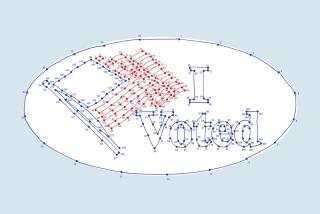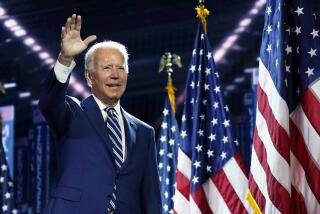Time for a Primary Change
California used to be the big enchilada when it came to presidential primary elections. Golden State pols wax nostalgic about the good old days when the long primary season, born in the snows of New Hampshire, would come to a resounding climax in the June primaries beneath the palm trees and by crashing Pacific waves. There were titanic battles of Goldwater-Rockefeller, Kennedy-McCarthy and Humphrey-McGovern. With their massive prizes of California delegates, the winners swept into the conventions with steamroller momentum.
Those days are long gone, however. Not since 1972 has either party’s California primary played a decisive role in the convention nominating process. California has become important mostly for the size of campaign contributions that could be gleaned from the state, for use in earlier, more-critical primaries back East.
That may change with the 1992 elections. The Assembly has passed a bill by Assemblyman Jim Costa (D-Fresno) to move the California primary from the first week in June to the first week in March. The measure is now before the Senate. Thus, California’s massive blocs of delegate votes would be up for grabs immediately after the opening events in Iowa and New Hampshire.
Certainly California’s influence would be enhanced. But there are concerns in the Senate about the cost of a separate election and the effect on the turnout at the regular state primary in June every four years. Yet other states manage to have split primaries without serious problems. Ideally, the state primary should be held later in the year--in August or September--to shorten the long state general election campaign, but that has not been seriously considered.
Also, ideally, the two national parties should agree on a rational primary election schedule that does not allow two tiny states to play such a dominant role at the outset every four years. But until that happens, California should take advantage of this opportunity to exercise political influence that bears some resemblance to its size.
More to Read
Get the L.A. Times Politics newsletter
Deeply reported insights into legislation, politics and policy from Sacramento, Washington and beyond. In your inbox three times per week.
You may occasionally receive promotional content from the Los Angeles Times.






![[20060326 (LA/A20) -- STATING THE CASE: Marchers organized by unions, religious organizations and immigrants rights groups carry signs and chant in downtown L.A. "People are really upset that all the work they do, everything that they give to this nation, is ignored," said Angelica Salas of the Coalition of Humane Immigrant Rights. -- PHOTOGRAPHER: Photographs by Gina Ferazzi The Los Angeles Times] *** [Ferazzi, Gina -- - 109170.ME.0325.rights.12.GMF- Gina Ferazzi/Los Angeles Times - Thousands of protesters march to city hall in downtown Los Angeles Saturday, March 25, 2006. They are protesting against House-passed HR 4437, an anti-immigration bill that opponents say will criminalize millions of immigrant families and anyone who comes into contact with them.]](https://ca-times.brightspotcdn.com/dims4/default/34f403d/2147483647/strip/true/crop/1983x1322+109+0/resize/840x560!/quality/75/?url=https%3A%2F%2Fcalifornia-times-brightspot.s3.amazonaws.com%2Fzbk%2Fdamlat_images%2FLA%2FLA_PHOTO_ARCHIVE%2FSDOCS%2854%29%2Fkx3lslnc.JPG)



